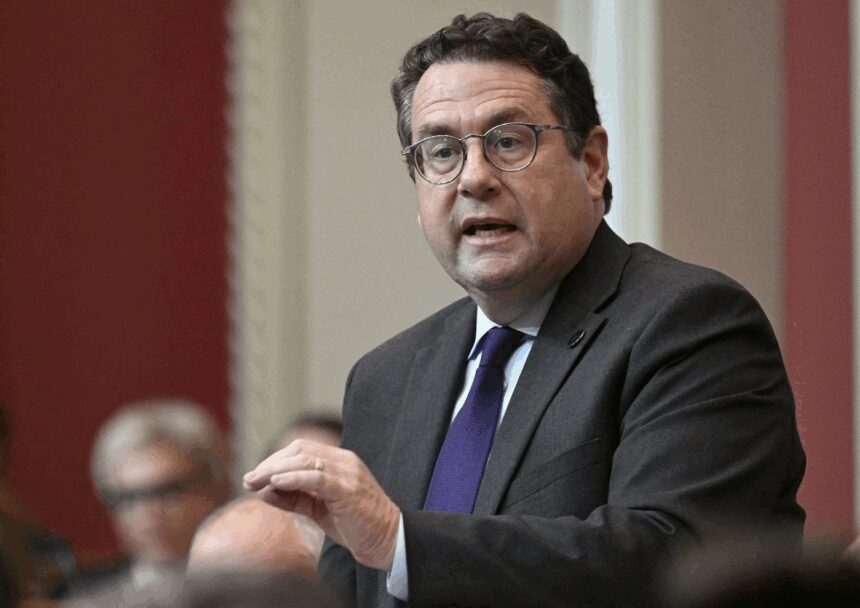Quebec’s education landscape is shifting as Education Minister Bernard Drainville introduces significant amendments to Bill 94, tightening regulations around homeschooling while attempting to balance parental rights with educational standards.
The proposed changes, announced yesterday at a press conference in Quebec City, aim to strengthen government oversight of the estimated 12,000 homeschooled children across the province. Drainville emphasized these measures come in response to concerns about educational quality and consistency.
“We must ensure all Quebec children receive quality education that prepares them for future success, regardless of where that learning takes place,” Drainville stated. “These amendments provide necessary oversight while respecting parents’ choices.”
The bill’s most controversial amendment requires homeschooling families to follow the Quebec Education Program more closely, with mandatory evaluations every semester rather than annually. Children must demonstrate grade-appropriate progress in core subjects including math, science, French, and history.
Parent advocates have expressed mixed reactions. Marie-Claude Tremblay, president of the Quebec Homeschooling Association, voiced concerns about increased bureaucracy. “Many families choose homeschooling precisely to escape rigid structures,” she noted during a community meeting in Montreal last week. “We support accountability but worry these changes undermine the flexibility that makes homeschooling effective.”
However, education experts like Dr. Sophie Bergeron from Université de Montréal see potential benefits. “Research shows that clear standards combined with appropriate flexibility often yields the best educational outcomes,” she explained when contacted for comment. “The challenge lies in implementation.”
The amendments include provisions for specialized support for homeschooled children with learning difficulties – a move widely praised by advocacy groups. The government has allocated $3.2 million for assessment services and educational resources specifically for these families.
I’ve covered education policy in Quebec for nearly eight years, and these changes represent the most significant shift in homeschooling regulations since 2017. Walking through Plateau Mont-Royal last evening, I overheard intense discussions among parents at a local café, highlighting how deeply educational choices affect Montreal families.
The bill also addresses concerns about religious extremism, requiring homeschooling curricula to align with Quebec values as outlined in the Charter of Rights and Freedoms. This aspect has drawn criticism from some religious communities who fear it may restrict their educational approaches.
Robert Leclair, spokesperson for the Coalition for Educational Freedom, argues the government is overreaching. “Parents have primary responsibility for their children’s education,” he stated in a press release. “These amendments risk turning homeschooling into ‘school-at-home’ rather than respecting diverse educational philosophies.”
Implementation timelines have been extended following consultation with stakeholders. If passed, the new requirements would begin phasing in January 2026, giving families approximately six months to adapt their programs.
The Montreal School Board expressed cautious support for the changes. “We believe in parental choice while ensuring all children receive quality education,” said Director Catherine Harel. “These amendments strike a reasonable balance, though implementation details will be crucial.”
For Montreal’s diverse communities, the impact of these regulations varies significantly. In multicultural neighborhoods like Côte-des-Neiges, where alternative education approaches are common, parents have organized information sessions to understand how these changes might affect their educational choices.
As someone who has reported extensively on education in our city, I’ve observed how passionately Montrealers defend educational diversity while acknowledging the need for standards. Last month’s public consultations at the Bibliothèque et Archives nationales du Québec revealed this tension clearly, with over 200 participants representing various perspectives.
The bill includes a review mechanism requiring the Ministry to evaluate the effectiveness of these changes after three years, a compromise reached after negotiations with opposition parties.
With the National Assembly set to vote on Bill 94 next month, the debate continues across kitchen tables, community centers, and social media throughout Montreal and beyond. The outcome will significantly shape how thousands of Quebec families approach education in the coming years.
What remains certain is that Quebec’s approach to education continues evolving, reflecting broader conversations about the balance between parental autonomy and governmental responsibility in shaping future generations.







